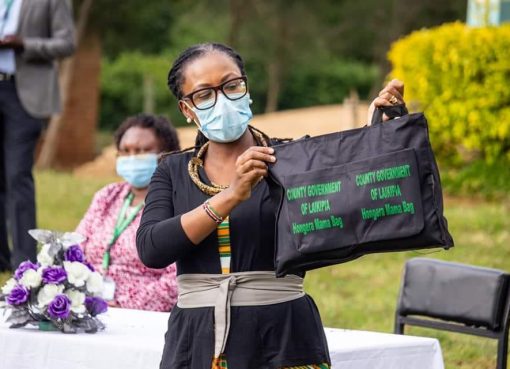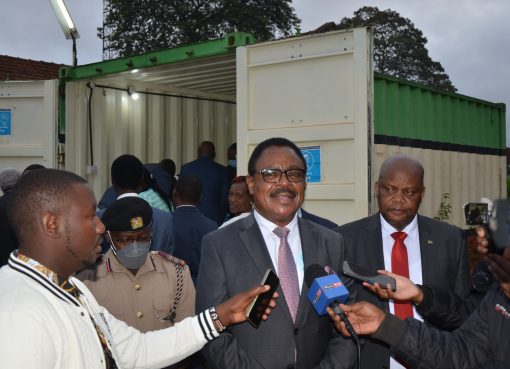Technology has become even smarter as Kisumu County adopts an air quality management project that provides residents with detailed information about the general quality of air of their surroundings.
The lakeside city has partnered with Airqo tech firm from Uganda to roll out the initiative that monitors the quality and safety of the air people breathe and helps in combating air pollution.
The development gives Kisumu the impetus to achieve its smart and resilient city plan that leverages technology and innovative solutions to improve service delivery.
Air pollution sensor devices that are integrated with artificial intelligence technology have been deployed in selected spots in Kisumu’s Central Business District (CBD), Jua Kali area, Kibuye market, and the main bus terminus to gauge and provide real-time air quality analytics that could be accessed through a smartphone App or a digital dashboard.
Users of the mobile App will be able to note the variation in levels of air quality in particular areas through colour change with green as the best quality and red as the poorest signal.
Apart from Kenya’s Kisumu city, the initiative funded by Google will also be implemented in 9 other cities from five African countries including Jinja, Kampala and Fort Portal (Uganda), Duala (Cameroon), Dakar (Senegal) and Lagos (Nigeria) for the next three years.
The Acting City Manager Abala Wanga speaking during the signing of an MOU with Airoq said Kisumu was identified for the project because it has positioned itself as a model city of the future leveraging technology towards the realization of a sustainable smart city in the region.
Wanga affirmed that the programme would provide hyperlocal air quality insights that will guide policy implementers and local leaders to make informed decisions and support their actions to improve the City’s climate and health.
“The project supports Kisumu’s efforts to close the existing air quality data gaps by offering solutions that bridge the gap between policy and the actual air quality infrastructure. Kisumu City authorities and residents will use the data to monitor the city’s progress in air quality and take action to achieve cleaner air objectives,” stated Wanga.
Speaking on behalf of Governor Anyang’ Nyong’o at the same event, the County Secretary John Auma hailed the initiative saying that it would enhance the living standards of the city residents.
Clean air, he affirmed, will help the city accrue many benefits including good health, a prosperous economy and improved agricultural production.
Airqo founder Prof Baina Mugisha said that the organization’s aspiration is to work with Kisumu and all other African Cities to better manage air quality and achieve clean air in the cities.
“People are going to live healthier lives and be more productive. Kisumu city will attract more visitors because people want to stay where they breathe clean air,” stated Prof Mugisha.
The World Health Organization (WHO) estimates 4.2 million people die from outdoor air pollution annually. However, in many low and middle-income countries, there are limited data on pollution levels due to the prohibitive cost of air-pollution monitors.
The low-cost air quality monitoring is also expected to align with Kisumu’s sustainable mobility plan that focuses on providing smart transit systems that reduce emissions to the environment.
The plan which promotes the increased use of cleaner modes of travel will be carried out in partnership with the Institute for Transportation and Development Policy (ITDP) and the United Nations Human Settlements Programme (UN-Habitat) for the next ten years.
It will place Kisumu as the first city in the region to adopt high-quality public transport programs that address congestion, air, and noise pollution, and safety concerns.
In addition, the lakeside city unveiled a Citywide Greening Initiative which incorporates locals and other stakeholders in a monthly tree seedling planting exercise to improve its forest cover and conserve the environment.
The County targets to plant at least 3 million trees for the next three years to ensure Kisumu city adapts to the effects of climate change and global warming.
By Robert Ojwang’




